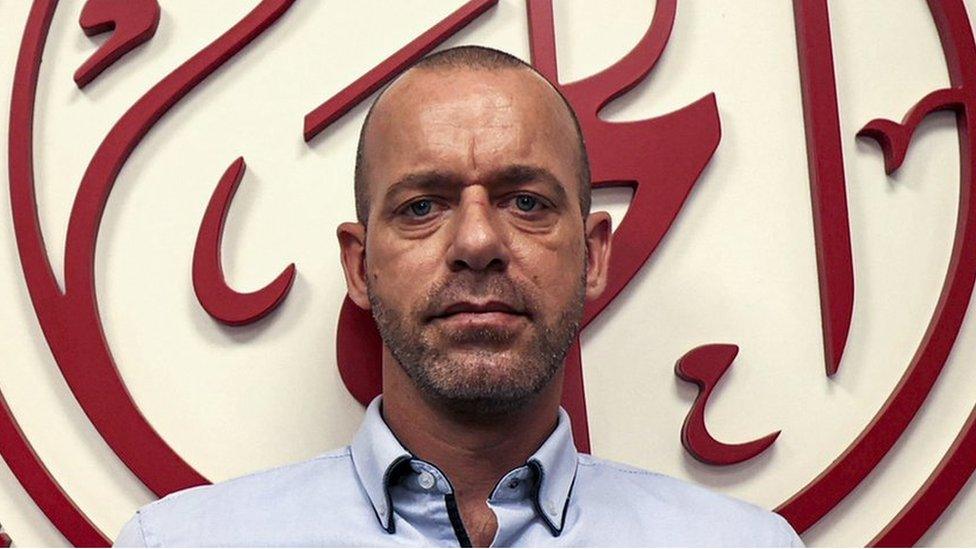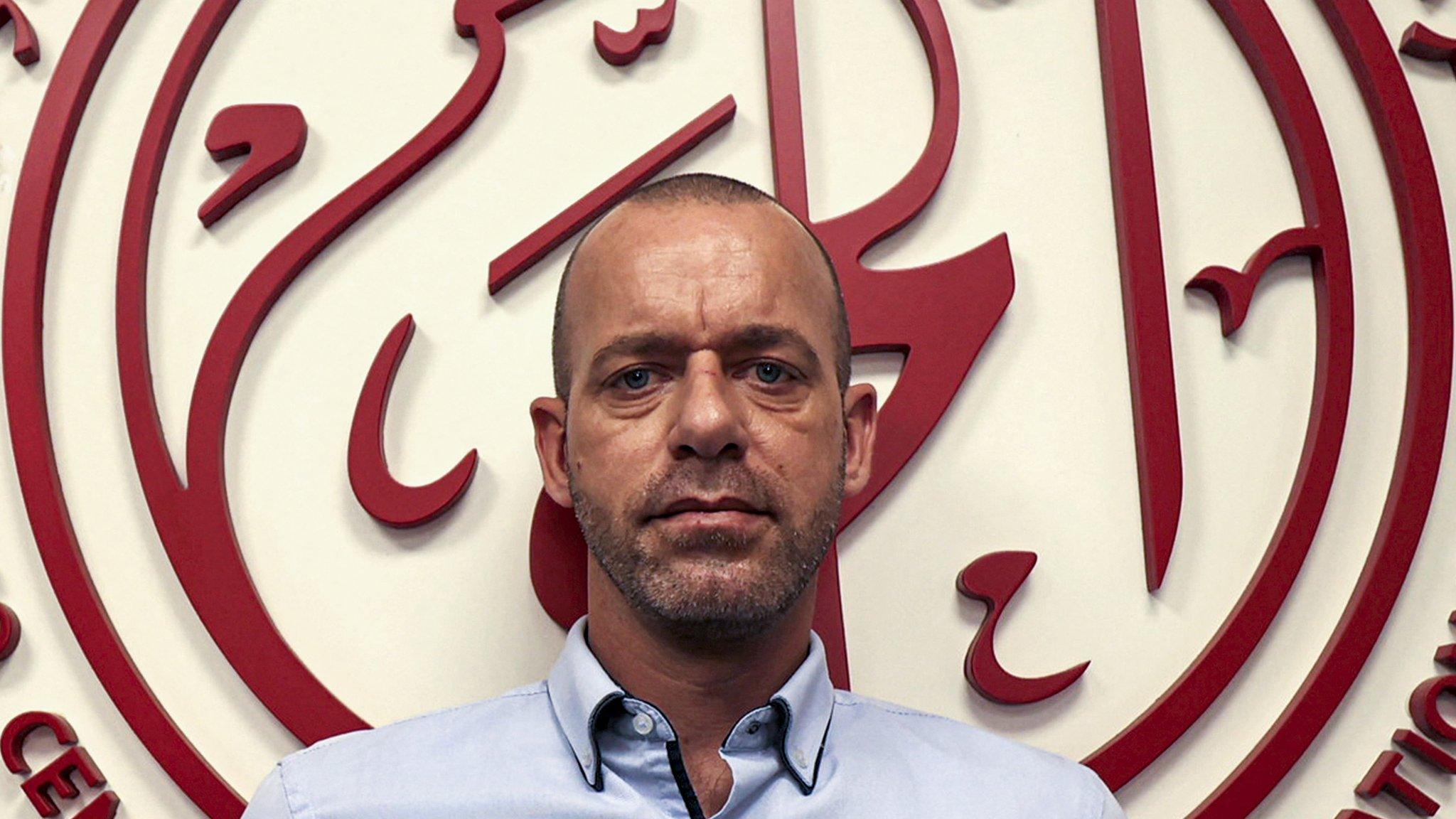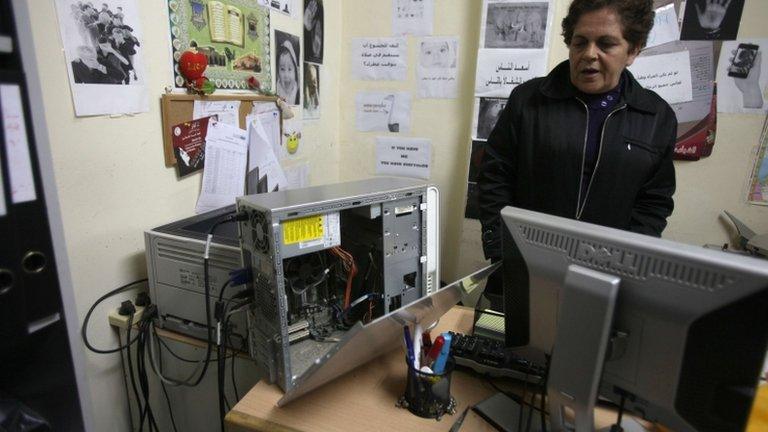Salah Hammouri: Israel deports Palestinian lawyer to France
- Published

Salah Hammouri has been held in Israeli administrative detention since March
Israel's interior ministry says it has deported a Palestinian-French human rights lawyer after accusing him of security threats.
Salah Hammouri, 37, was escorted onto a flight to France by police early on Sunday morning, the ministry said.
A lifelong resident of Jerusalem, he was stripped of his residency rights after officials accused him of being a member of a terrorist organisation.
Mr Hammouri denies the charges and rights groups have condemned the move.
The French foreign ministry also expressed disappointment at the decision, and said it condemned "the Israeli authorities' decision, against the law, to expel Salah Hammouri to France".
But in a statement, the Israeli interior ministry said Mr Hammouri had "organised, inspired and planned to commit terror attacks" against "citizens and well-known Israelis".
Interior Minister Ayelet Shaked, part of the outgoing Israeli government, hailed the move as a personal success.
"Justice has been done to the terrorist and he has been deported from Israel," she said in a statement.
"This was a long and protracted process and it is a tremendous achievement that I was able to bring about his deportation just before the end of my duties, using the tools at my disposal to advance the fight against terrorism."
Mr Hammouri holds French citizenship through his mother. He held residency rights in Jerusalem - a fragile system used by Palestinians in Israeli-annexed East Jerusalem which can be revoked by authorities. He does not hold Israeli citizenship.
He works for Addameer, a Palestinian legal aid and prisoners' rights group that was designated a terrorist organisation by the Israeli defence ministry in October 2021 along with five other Palestinian civil society groups.
The military said they were linked to the Popular Front for the Liberation of Palestine (PFLP), a Palestinian militant group that Israel considers a terrorist organisation.
In 2005 he was jailed for six years after being accused of attempting to assassinate an ultra-Orthodox rabbi and political leader, which he denied.
In March, Mr Hammouri was arrested and the Israeli military commander in the occupied West Bank ordered that he be held without charge or trial for three months under what is known as administrative detention.
Such detention orders are routinely used by Israel to hold suspected militants for months at a time without charging them or putting them on trial.
After four months in detention, Mr Hammouri wrote a letter to French President Emmanuel Macron appealing for help. He was subsequently classified as "a prisoner of high risk" and transferred to a high security prison in central Israel.
In late September, he began a hunger strike to protest against his administrative detention. He ended it after 19 days, during which he was reportedly placed in solitary confinement.
Last month, he was informed he would be deported without trial, but the expulsion was delayed as his lawyers contested the case. The Supreme Court rejected his appeal earlier this month.
Amnesty International condemned his deportation and said he was "paying a high price for his work as a lawyer for Palestinians".
"The expulsion from the occupied Palestinian territories constitutes a serious violation of international law and the Fourth Geneva Convention and a potential war crime," the body added. "It could also constitute a crime against humanity."
And HaMoked, a Palestinian rights group, said the deportation set "a dangerous precedent" and constituted "a gross violation of basic rights".
Related topics
- Published2 December 2022

- Published29 October 2021

- Published11 December 2012
